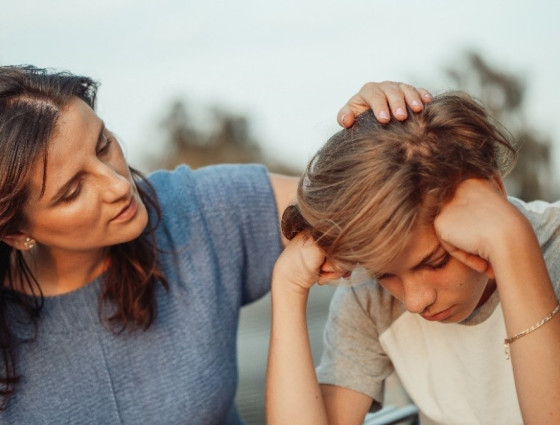
Puberty
Information about puberty for young people with SEND.
The average age for puberty to start is 11 for girls and 12 for boys, and it marks another area of great change for young people and their families. As with everything else, preparation is key, so you may want to consider talking to your young person about the changes they can expect and do some research about the sort of resources available to help you explain.
Puberty, self-care and sexual health, are all related subjects and the internet is a useful source of information and resources. You may find talking to your GP, someone at your young person’s school, or your child’s paediatrician about the subjects can help, and you can ask them for advice on the best way to approach the topics and if they can recommend any resources. The school will be planning lessons around the subject, so it’s worth finding out when this is likely to happen and ask if there is any supporting materials you can use at home.
As we have said, the internet is a rich source of information and there are websites with useful articles, information, and advice for parents, along with resources you can download to help. It might also be worth looking at some of the online communities/chat forums on SEND charities websites, as someone else may have posed similar questions to those you have. Have a chat to friends with older children and ask them how they broached the subject and what, if anything, they found that helped.
Your young person may also want to engage with someone outside of the family, so perhaps talk to their class teacher about who would be the best person to direct them to. Every school has a nominated school nurse, and they are trained to talk about these topics, so you could suggest they make arrangements to see them.
In Worcestershire, sexual health services are provided by the WiSH service (Worcestershire Integrated Sexual Health Service (WISH) | NHS.) WiSH has a team of sexual health outreach nurses, who work with young people who cannot or aren’t able to access mainstream sexual health services. They offer one-to-one support, information and guidance regarding contraception, sexually transmitted infections and safer sex. They currently only accept professional referrals. Sexual Health - Outreach (under 25s) | NHS
Resources
We have listed several resources here that we have found online or have been recommended to us, which may help and support you to explain about puberty, self-care and sex. We have made every attempt to ensure all information held here is accurate, but we cannot accept any responsibility for third party websites, their inclusion here is for your information only and does not represent endorsement or recommendation by the council.
Growing up, sex and relationships this section on the Contact website contains a variety of articles about Puberty and growing up, Sex and sexual awareness and Sex and relationship education in school you will also find guides to download for parents and for young people. Family Lives have an article Puberty and disabled teens (Family Lives) which contains tips for supporting your teenager.
National Autistic Society has a guide for parents talking to their children about sex education, including how to talk to your child about puberty.
Sheffield’s Children’s NHS Trust has a library of resources on its website which includes a guide to talking about puberty to boys with a learning disability, unfortunately there isn’t one about talking to girls.
Barnados are currently working on a pack called ‘Real Love Rocks’ for young people with SEND, it’s a teaching pack but you may find elements of it useful. You can register to receive updates about the pack on their website.
Easy Health is a website which covers a range of health subjects in an easy read format, you have to register to access the resources, but it’s completely free.
Non-SEND specific resources
Childline also have a range of resources for young people on their website, they are not specifically for SEND young people, but they may be useful for some families.
The Family Planning Association (FPA) website includes a guide for parents about how children are taught about relationships and sex education in primary school.
Useful links
- Worcestershire Integrated Sexual Health Service (WISH) | NHS
- Growing up, sex and relationships
- Puberty and disabled teens (Family Lives)
- Sex education - a guide for parents (autism.org.uk)
- Puberty in boys with learning disabilities - Resource Library - Sheffield Children's NHS Foundation Trust (sheffieldchildrens.nhs.uk)
- SEND Pack (barnardosrealloverocks.org.uk)
- Let’s Talk About Puberty | Easy Health
 Facebook
Facebook Twitter
Twitter Email
Email WhatsApp
WhatsApp Messenger
Messenger